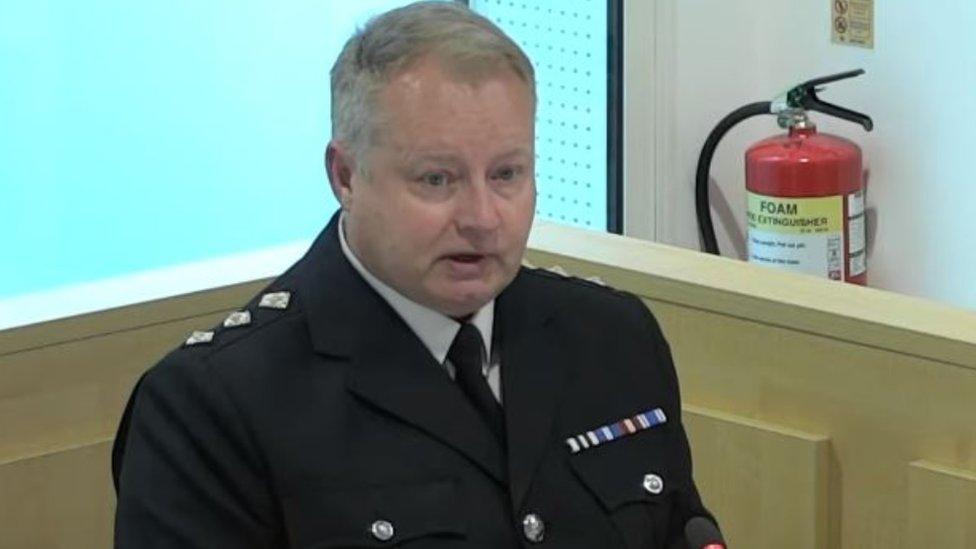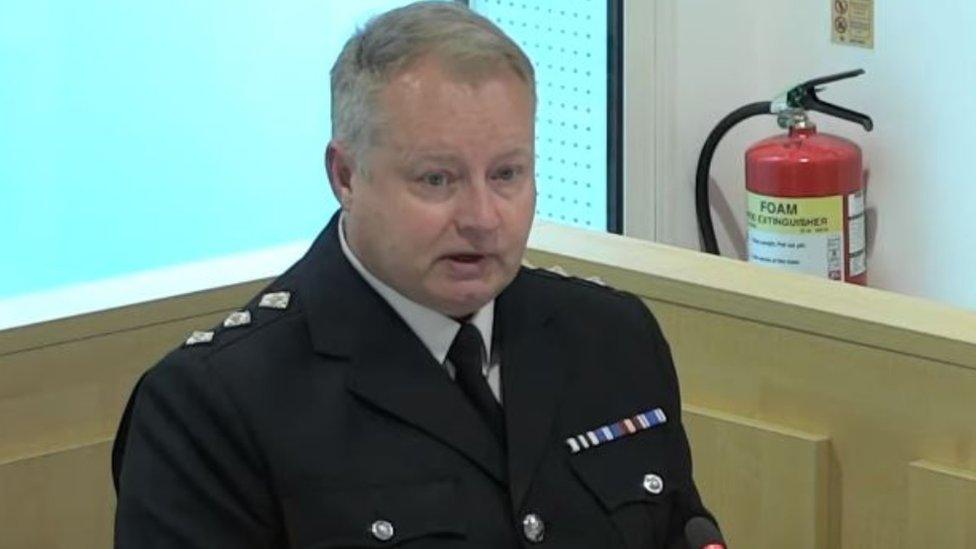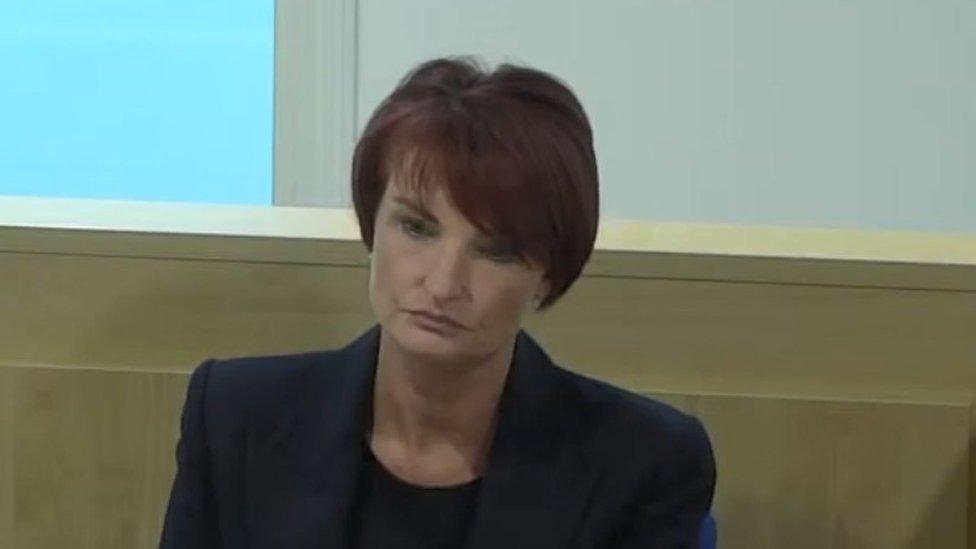Manchester Arena inquiry: PC wanted 'all hands on deck' at scene
- Published

Twenty-two people died in the attack on 22 May 2017
One of the first police officers to arrive at the scene of the Manchester Arena attack has told a public inquiry he was desperate to get emergency responders in to treat the injured.
PC Edward Richardson said the incident should have been treated as a so-called "warm zone", so responders could help.
With four firearms officers at the scene, he said he would not have forced anyone treating the injured leave.
"I'm never going to tell them to leave and then watch people die," he said.
The firearms officer, who took on the role of Operational Firearms Commander on the night, said although he regarded the arena foyer area to be vulnerable to the threat of another bomb, he felt it was necessary responders could get in and treat the injured.
Twenty-two people were killed when Salman Abedi detonated a homemade device at the end of an Ariana Grande concert on 22 May 2017.
'It was disbelief'
Mr Richardson said he wanted responders there quickly.
He continued: "All hands on deck at that point. You need anyone and everyone who can administer trauma care and anyone who can evacuate casualties."
The inquiry was told Mr Richardson made several radio calls to Inspector Dale Sexton, the Greater Manchester Police Force Duty Officer (FDO) commanding the incident from the control room.
In one of the calls, Mr Richardson said: "We just need more ambulance staff, paramedics, anyone that we can get hold of please."
Mr Richardson said he honestly believed he told the officer over the radio that the arena foyer should be treated as a warm zone.
However, the inquiry heard there was no evidence this radio transmission was ever received by the FDO.
Since the atrocity, Mr Richardson said he has "struggled" with not being able to help treat those who were injured.
"Firearms officers are there for a specific role, to take on any threat they perceive," he said.
"It was disbelief what I was looking at. I couldn't believe what was going on."
The inquiry continues.

Why not follow BBC North West on Facebook, external, Twitter, external and Instagram, external? You can also send story ideas to northwest.newsonline@bbc.co.uk
Related topics
- Published7 May 2021

- Published6 May 2021

- Published5 May 2021

- Published29 April 2021

- Published28 April 2021

- Published27 April 2021
